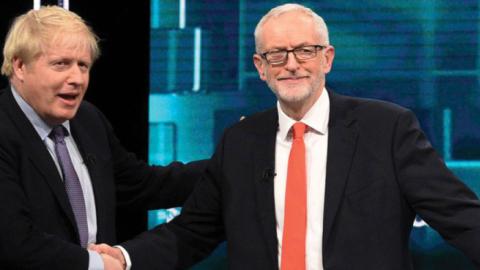The allegations are flying thick and fast. In the run-up to Britain’s Dec. 12 general election, both right and left are accusing each other of being the Kremlin’s favored side. Voters face a bewildering flurry of stories about hacks, disinformation and Russian influence. Prime Minister Boris Johnson’s decision to block a parliamentary report documenting Kremlin influence has only added to the mess.
The truth is simpler: Whatever the outcome of the election, Russia has already won. Those in Moscow charged with the task must be following events in the United Kingdom with a deepening sense of satisfaction.
Britain’s Kremlin-angering balancing act has run its course. For decades, the United Kingdom has tried to have it both ways. It has embraced Russian oligarchs, dirty money and luxury real estate purchasers even as it has fitfully tried to strengthen the defenses of its NATO allies and European Union partners against Russia’s revanchist campaign of assassinations, disinformation and dirty wars. But power shifts inside both big parties have pushed Tory and Labour cold warriors to the side.
Both Johnson and the Labour Party’s Jeremy Corbyn are offering more isolationist visions of Britain in the world — albeit in very different ways. While the Conservative Party pushes a vision of a “buccaneering Britain” unchained by Brexit, Labour touts a socialist-inspired reconstruction of the British state in which Corbyn’s foreign policy would weaken London’s commitment to NATO. To put it bluntly: Standing up to Vladimir Putin is nobody’s priority.

















